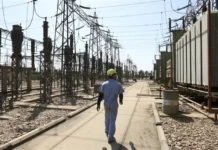Economic expert Alaa Al Fahad discovered that the liquidity disaster facing Iraq stems from massive spending and susceptible non-oil revenues, stressing that the disputes in the Kurdistan area and oil export troubles in addition complicate the monetary situation.
“Iraq’s heavy reliance on oil makes it prone to rate fluctuations and production fluctuations, particularly after the current troubles with the Kurdistan region and the Federal court’s selection, in addition to the Turkish authorities’s decision to droop oil export agreements thru pipelines.”
He added that “the 3-12 months finances, instead of being a technique to the monetary and monetary issues, has become a motive for the stagnation of tasks,” stressing that “local disputes play a prime role in exacerbating the economic disaster.” He talked about that “the crisis also lies within the huge extent of spending, the weak point of non-oil revenues, the difficulty of vulnerable cash float, in addition to the existence of a illness within the economic mass outside the banking machine and the susceptible investment rate.”
To cope with this imbalance, Al-Fahd explained, “The government has labored to deliver in the non-public region, reduce the imbalance, and stimulate the producing enterprise. The valuable bank is also operating to issue treasury bonds as home debt to finance the cash deficit, agreement with worldwide businesses to restructure banks, facilitate small groups, and release tasks in the housing and energy sectors to enhance the economy and repair self assurance inside the banking gadget.”
In a associated context, he stated that “Iraq has reached 22 million electronic playing cards, public quarter personnel’ salaries were localized, and private region salaries have all started to be localized.”
Al-Fahd did not rule out the possibility that focused on the place’s oil fields turned into a “political game” and a continuation of the oil smuggling operation, concluding with the aid of stating that “since the Sixties, Iraq has endured to rely upon budgeting objects instead of budgeting programs and overall performance.”





